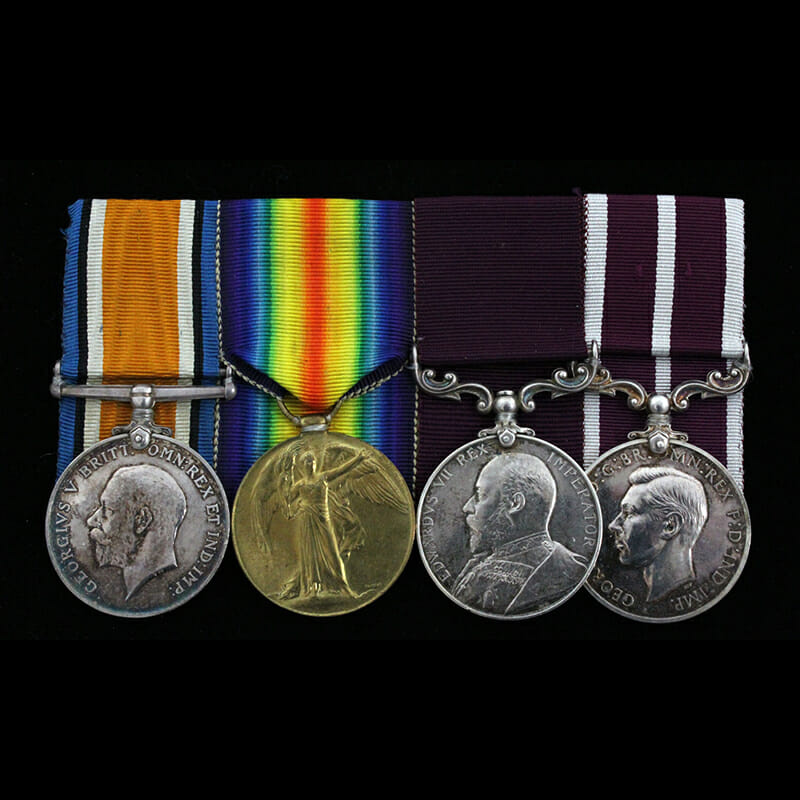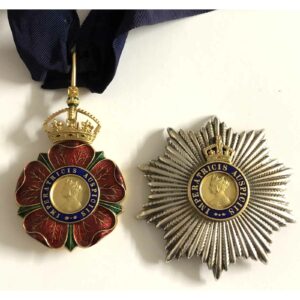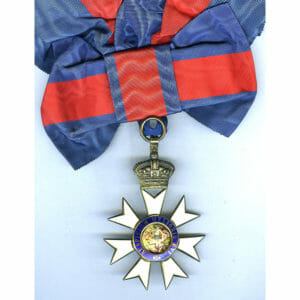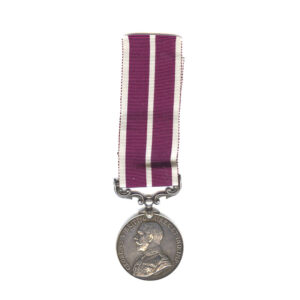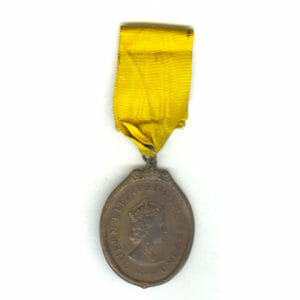Description
British War Medal and Victory Medal, Army Long Service and Good Conduct, EVII, Army Meritorious Service Medal, GVI, Company Sergeant Major and Instructor, Major Henry Baxter, Essex Regiment.
An important and most well regarded long time N.C.O. of the Essex Regiment, WW1 finally gave him the chance to become and officer and he was instantly made Captain in the 5th Battalion Essex Regiment aged 46.
British War Medal and Victory Impressed; “Capt. H. Baxter”
Army Long Service and Good Conduct impressed; “2176 C. Sgt: H. Baxter. Essex Regt.”
Meritorious Service Medal impressed; “2176 C. Sjt. H. Baxter. Essex. R.”
Born in 1869, in Suffolk, as soon as he reached the age of 18 he joined the 4th Battalion Essex Regiment on 29th June 1887.
Sergeant Baxter had just been discharged in 1913, at the age of 44 having been an exemplary Sergeant Major and Instructor, he immediately took back his role the next year when needed, he had already seen 26 years service, more time than most of his men had lived, he went over to France arriving in theatre on 15th December 1917.
Chelmsford Chronicle 16 October 1914; Henry baxter to be Quartermaster, with the honorary rank of Lieutenant.
Essex Newsman 25 November 1916; Essex Regiment, Territorials: Lieut (Temp Major) H. Baxter, from a Territorial Batt. to be Major (temp.).
When the war broke out and the National Reserve was mobilised a newspaper article in the Chelmsford Chronicle on 21st August 1914 details the mobilisation and has Sergt Major Baxter commanding the new reserves and explaining what would be ahead of them.
“Sergt Major baxter first of all read a new order of the War Office allowing members of the National Reserve not over 42 years of age to enlist into reserve and extra reserve battalions. They would be attested as privates for one year, or for the duration of the war, for general service.
They would after attestation, be eligible for promotion, but no guarantee of future promotion could be given. Ex-non-commissioned officers unwilling to agree to those conditions could not be accepted for service. up to this order, said the Sergeant-Major, the National Reserve were required to fill the gaps and the deficiencies in the Territorial Force. Every unit in Essex was now up to strength. The Regular Army was also up to strength.
Sergt-Major Baxter then explained the use of the the rifle to the reserves. Events in South Africa, he said, called attention to the need of reform in musketry methods. The chief cause of the change was in the introduction of smokeless powder, introduced a few years before that war broke out.
Then came khaki uniforms. In South Africa our officers were perplexed by the invisibility of the enemy, being unable to reply to the heavy fire which met them during the advances, and overwhelmed by attacks from ambushed enemies who got away as soon as they were discovered. Now the training in the Regular Army was up to very high standard of efficiency, all being due to that “void of the battlefield.” According to reports, the Germans were fighting in close formation even now, and that would be very disastrous when they met soldiers trained to get under cover at once. Turning to the rifle, the lecturer said that for more than fifty years before the South African War broke out we were spending money lavishly on improvements to the rifle, only to find that on the battlefield of the veldt our standard of accuracy was entirely false and misleading. Since then the Government had been trying to educated both the Officer and the soldier. But the rifle was beyond us.
RIFLE BEYOND US.
It was too good for us, even today. About a year ago, however, he saw a man who fired 33 rounds with one of these rifles in one minute, and all the shots came within a 36-inch ring, the bull and the inner.
Older members of the National Reserve who used the Martini would say that was quite impossible, but he ventured to say that if each member studied the rifle and turned up for practice he might be able to fire twenty rounds a minutes. The territorial was expected to fire 15 rounds a minute under the standard test. More than 1,500 rounds, said Sergt-Major Baxter, were fired in the South African War for every casualty inflicted. That was a serious thing, and was simply because we were not educated up to the pitch of the rifle.
The Lecturer then went on to illustrate the modern methods of firing at the unseen enemy, disproving the theory that the miniature riflemen would be of any use in practical warfare without training, and showing the necessity for discipline, careful attention to the word of command, and the need for a thorough understanding of the officer’s directions. He also spoke of the importance of educating the eye to distance, and gave several valuable hints to the men which he told them would be of great use at this eleventh hour if they were called upon to do their duty.”
Essex Newsman 18 September 1909;
ONGAR
The wedding of Color-Sergt-Instructor Baxter, of G. Company, 4th batt. Essex Regiment, eldest son of Mr James Baxter, late of Colchester, to Miss Elizabeth Irene Lemon, eldest daughter of Mr. Robert Lemon, builder, of Ongar, took place at the Congregational Church on Wednesday, the Rev. A. Goodall officiation. The bride wore a cream Empire dress, with veil and orange blossoms. As an ornament she wore a gold bracelet, the gift of the bridegroom. She was given away by her father. The Bridesmaids were the Misses D. Lemon and Chrissie Baxter, and they were dressed in cream, and wore gold brooches, the gift of the bridegroom. A reception was held at the home of the bride. The honeymoon is being spent at Eastbourne. There were a number of presents, among them a marble clock and an illuminated address given by the Officer, N.C.O.’s and men of G. Company.”
Chelmsford Chronicle 19 July 1912;
“ONGAR
The annual Prize Distribution of the G Company, 4th Essex Regt., took place at the Budworth Hall. Col. Sir Godfrey V. Thomas, D.S.O., presided.
The prizes were presented by Col. Sir Godfrey THomas. – Capt. Wells, in his annual report, said the strength of the Company was 141, as against 102 last year. – Sergt-Major Baxter, late Colr-Sergt-Instr. of the Company, was presented with a plated coffee service from the officers and N.C. Officers, in recognition of his good work during his service with the company.”
Chelsmford Chronicle 31 January 1913;
“Sergt-Major H. Baxter presided at the annual sergeant’s mess dinner of the 4th Batt. Essex Regt., at Ilford. Colonel Meggy V.D., responding to the toast of the officers, said of course they were losing men this year, but he hoped they would very soon see the strength back.
Patriotism was a very great thing, but it seemed to him the young men of the present day wanted that rammed into them a lot.”
